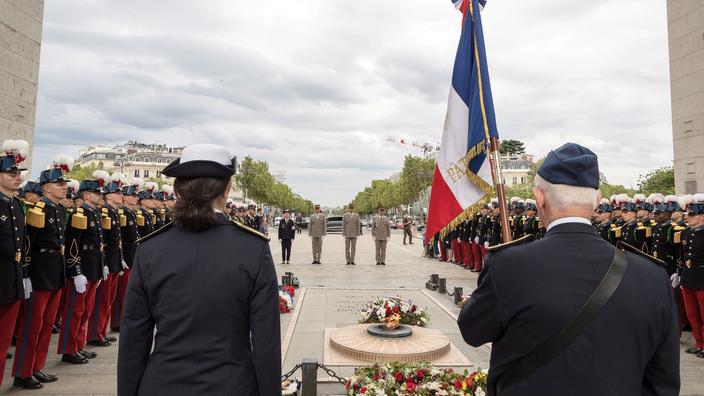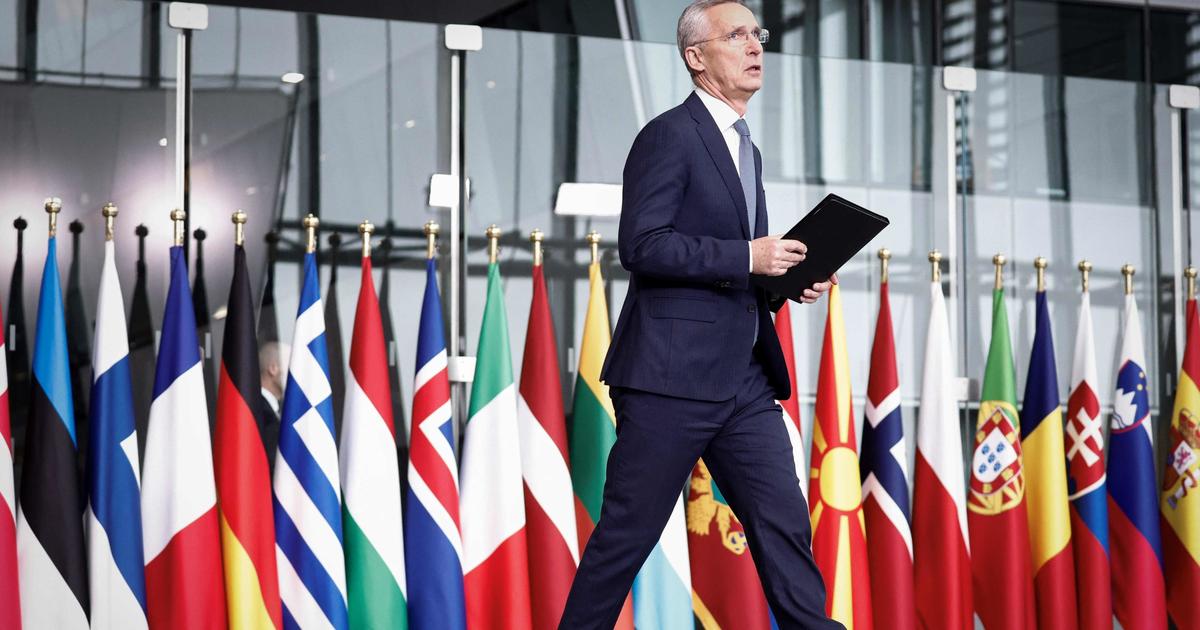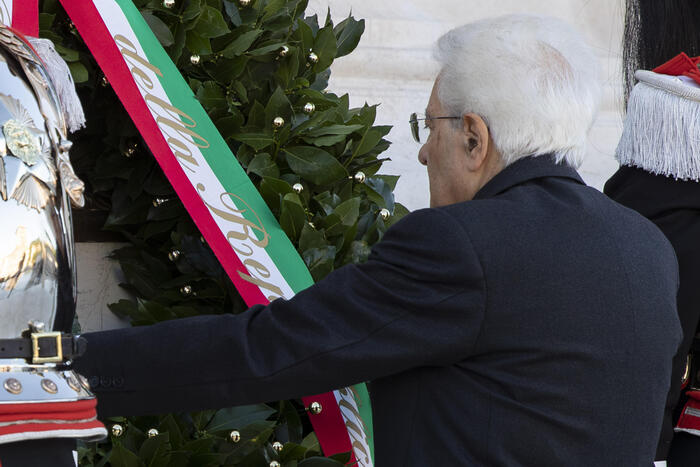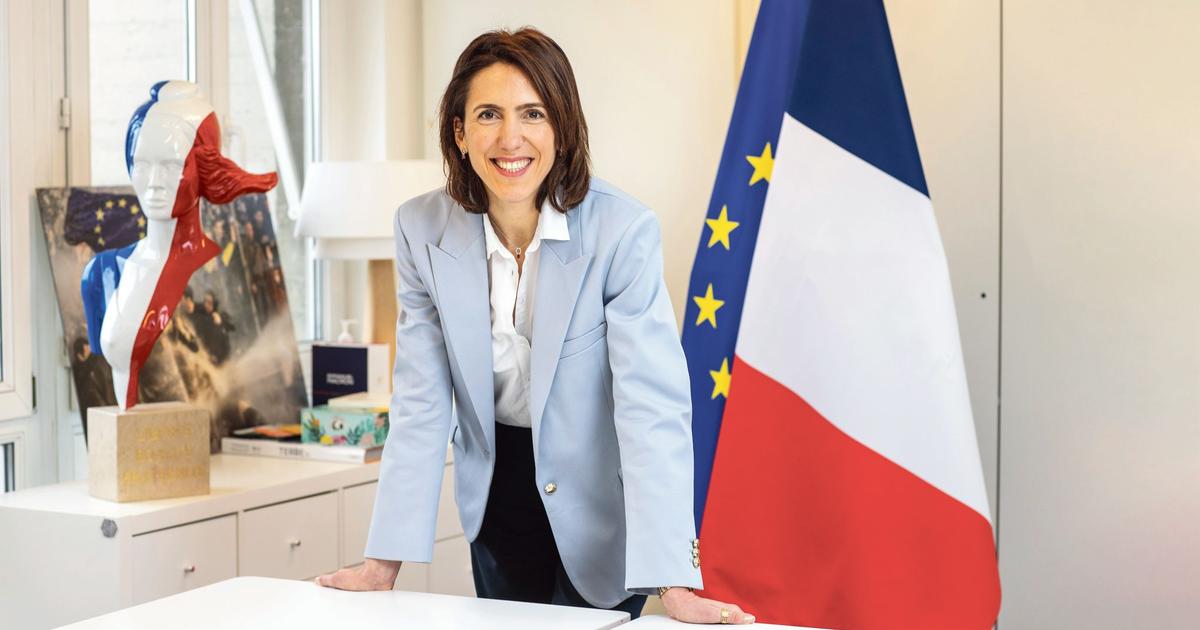General Bruno Dary is the Chairman of the Flame Committee under the Arc de Triomphe which rekindles the flame at the Tomb of the Unknown Soldier. Army general (2s), he is a former corps commander of the 2e REP and former commander of the Foreign Legion.
During most funerals or on many tombstones, one often read or always hear this beautiful expression "May he rest in peace".
Indeed, whether we believe in Heaven, or that we do not believe in it, everyone in their hearts desires and hopes that the person who has disappeared - always too soon - has finally been able to find a deserved rest.
And yet if there is one, who would have deserved to hear these words, it is this soldier, at the same time unknown and famous, whose silence and anonymity make the greatness and whose tomb is also the cenotaph. of all his thousands of comrades in arms, yesterday and today, who died for France at the Field of Honor.
It is indeed the unknown soldier!
All these deaths still allow us today to live freely, in a country in peace, and without threat at its borders.
Bruno Dary
However, once again, he has just found himself at the heart of a controversy, from which our country will not really grow up and which it would have gladly done without. What is paradoxical is that no one allows himself to question this tomb and its symbol. Indeed, the some 1,400,000 soldiers who died during the First World War were, at the time, the price to pay to defend each acre of land and thus achieve victory. Today in particular, with our perspective or our references as a contemporary citizen, it seems difficult, if not impossible, to understand or justify the meaning of such a sacrifice. However, all these deaths still allow us today to live freely, in a country in peace, and without threat at its borders. Three years ago, more than 70 chefsState or government gathered to honor this simple soldier, and, through his burial, to celebrate the 100th anniversary of the end of the Great War.
But if no one questions this burial and the strong symbols associated with it, this unknown soldier paradoxically and quite frequently finds himself in the midst of debates or polemics, each seeking to justify a perception, an opinion or even an attitude around it. 'a place that is both mythical and mystical, the Arc de Triomphe.
Already, barely ten years after the burial of this simple soldier under the Arc de Triomphe, Clemenceau in his memoirs, “Grandeurs et misères d'une Victoire”, which will not be published until after his death, does not hesitate to to resort to the unknown soldier when he evokes his strong opposition with Marshal Foch, concerning the war damages and the political consequences of the victory. He thus begins the last chapter of his book with these words:
"And now, unknown soldier of France, what are you saying?" What do you want ? What do you do ? …. You gave everything, and you received nothing. "
And today, in front of the grave of this simple soldier, in front of the silence which, in the evening, covers this tombstone, but in front of the controversy aroused by the European shield which floated two days under the immense Arch, it seems opportune to to resort to the modesty of Father La Victoire and to question the unknown soldier, repeating his words:
"You, modest and noble creation of the popular spirit, forever silent under the funeral slab, it is you, whom I claim question. "
To read also General Bruno Dary: "And, you, unknown soldier, what are you saying?"
In this controversy, there were first of all those who did not feel concerned: we can understand them if this indifference was with regard to vain discussions, even childish which will be quickly forgotten. On the other hand, one would understand them less if it was about an ignorance or a contempt with regard to this tomb, which has become over the years a "sacred slab". To these, they should be advised to come just one evening, participate in the Rekindling of The Flame; they would easily understand the meaning of this simple ceremony, soon to be secular, which reminds us of the cost of tears, blood, and life, to us who, for two generations, have lived freely in a country at peace and a reconciled Europe.
When we are in front of such a monument, which synthesizes the history of France, since it was designed by an Emperor, built by a King and magnified by the Republic which made it a cenotaph, is it appropriate to add more?
Bruno Dary
Then there were those who revolted, because the tricolor shield had been obscured, which moreover is not correct, because the large tricolor shield is only installed on the occasion of national days, it that is, less than ten times a year. For those, as for the strong spirits who took advantage of the controversy to question the nationality of this stranger, it is enough to ask them to come to meditate in front of the tomb and to read the centenary inscription there:
"here rests a French soldier who died for the Fatherland - 1914 - 1918 ”
. Unless he was thinking of "
this foreigner, who became a son of France, not by the blood received, but by the blood shed"
…. In addition, when one is in front of such a monument, which synthesizes the history of France, since it was designed by an Emperor, built by a King and magnified by the Republic which made it a cenotaph, is it opportune to add more?
And then, there were the defenders of the European bulwark, for the sake of being in unison with the French Presidency, like many Parisian monuments. The paradox is that it is certain that this soldier, even an unknown one, was killed by the Germans, since his remains were recovered on one of the greatest battlefields of the Great War. But, in the long term, we must recognize that it took two world wars for Europe to be finally united and reunited, and that it is today pacified, since it has not known a major confrontation on its soil, for more than 75 years, which remains unique in its history.
“You who fell under enemy fire, you who gave everything and received nothing, what do you say to those who would like to forget your sacrifice, or hide your victory?
Clemenceau
We must recognize that we could have installed, as in 2008, even if the process was somewhat precarious, the two bulwarks, to symbolize both an often painful past, and a future that is meant to be optimistic. But beyond the opinions of each, beyond the quarrels of steeples and useless polemics, each one could, like Clemenceau, question this Poilu and ask him:
"You who fell under the fire of the enemy, you who gave everything and who received nothing, what do you say to those who would like to forget your sacrifice, or hide your victory? Don't you think it's time to honor your example and celebrate the reconciliation of peoples? ”
Thus, this Flame which has been burning for nearly a century will no longer be only the Flame of remembrance, it will also be the Flame of the Nation and, even better than that, it will then be the Flame of Hope!














